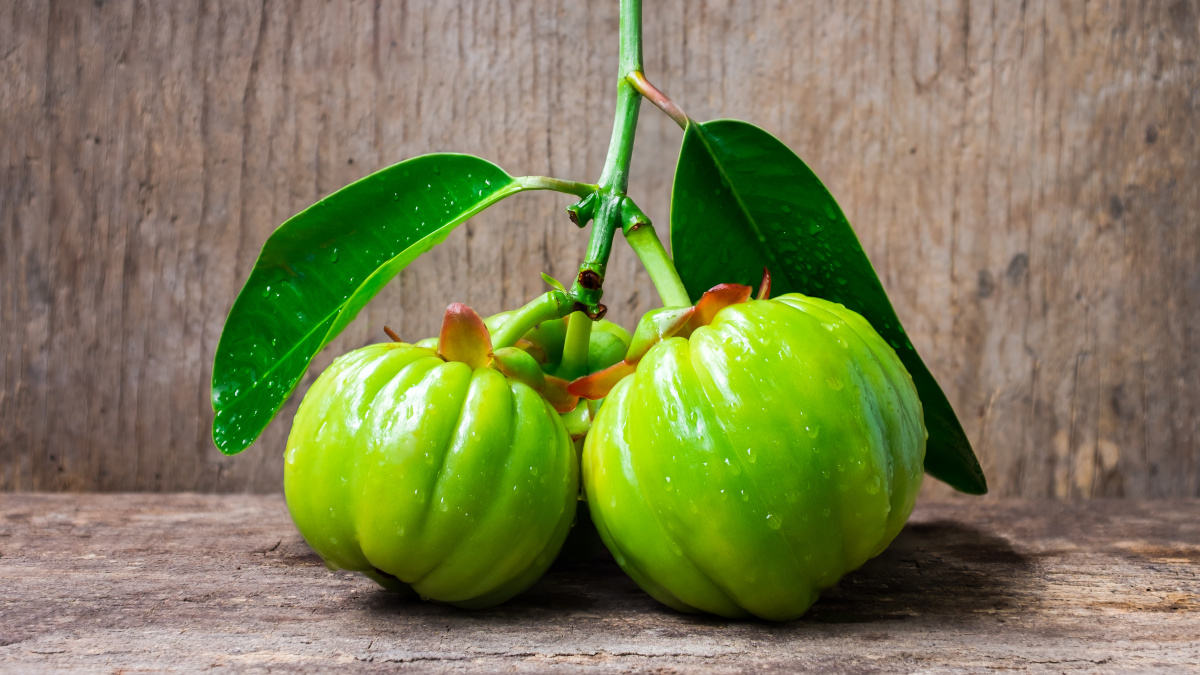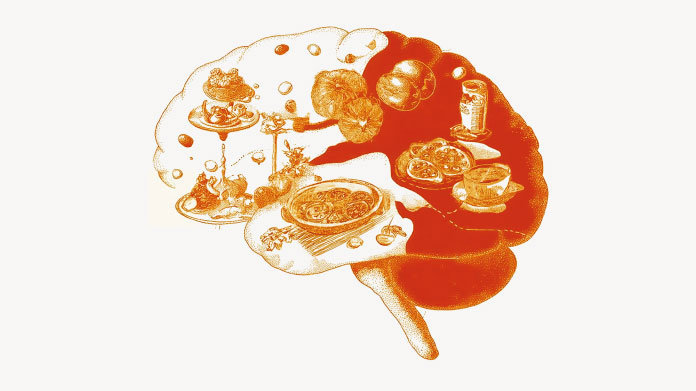Can Garcinia cambogia really help you to lose weight?
Garcinia cambogia is often referred to as an excellent aid to slimming. Can this Indonesian fruit genuinely help with weight control?

What exactly is Garcinia cambogia?
Garcinia cambogia is a small tree with green or yellow fruit, native to Indonesia. It’s also known by several other names:
- Garcinia gummi-gutta ;
- Kudam puli ;
- Brindleberry;
- Malabar tamarind ...
The fruit’s peel is a popular ingredient in Asian cuisine
In both India and Thailand, the peel of the Garcinia fruit is widely used as a flavoring agent.
It’s also taken in the form of a decoction.
What is the fruit’s active ingredient?
The Malabar tamarind, or more specifically, its peel, contains hydroxy citric acid (HCA).
This compound is an inhibitor of ATP citrate lyase which is involved in the production of fatty acids. It’s thought the regulatory effect of this ingredient is responsible for the plant’s highly specific benefits.
In fact, Garcinia is currently considered to be the only known significant source of HAC.
What have clinical trials revealed about Garcinia?
The majority of recent clinical trials confirm the efficacy of Garcinia as an aid to weight control(1-9).
One randomised, double-blind Japanese study concluded that an extract of the fruit helps to reduce the accumulation of abdominal fat, without causing any rebound effect (10).
A Spanish study reached similar conclusions, noting that Garcinia cambogia extract promotes weight control and helps to regulate sugar and lipid levels in the blood (11).
The benefits of Garcinia cambogia
In summary, the many studies conducted demonstrate that Garcinia cambogia helps to:
- control body weight;
- decrease the amount of fat stored in the body;
- reduce the sensation of hunger and urge for sugary treats;
- maintain normal blood sugar levels (12).
Thus it constitutes a highly beneficial compound for supporting weight control.
What’s the correct dosage?
Would you like to start supplementing with Garcinia?
If so, the dose generally recommended is between 1500 and 2200mg a day, to be taken 30 minutes before a meal. Supplementation can be continued for a period of 3 months.
Which Garcinia cambogia supplement should you choose?
An easy way to benefit from Garcinia’s properties is to take dietary supplements generally available in tablet form. Opt for a supplement with a high level of hydroxy citric acid.
The product Garcinia cambogia, for example, provides you with 2200mg of Garcinia rind a day and is standardized to 60% hydroxy citric acid for enhanced effects.
Caution: this plant is not recommended for those suffering from significant liver problems, or who are taking anticoagulants, statins, anti-histamines or iron supplements.
References
- Kim YJ, Choi MS, Park YB, Kim SR, Lee MK, Jung UJ. Garcinia Cambogia attenuates diet-induced adiposity but exacerbates hepatic collagen accumulation and inflammation. World J Gastroenterol. 2013;19(29):4689-4701. doi:10.3748/wjg.v19.i29.4689
- Onakpoya I, Hung SK, Perry R, Wider B, Ernst E. The Use of Garcinia Extract (Hydroxycitric Acid) as a Weight loss Supplement: A Systematic Review and Meta-Analysis of Randomised Clinical Trials. J Obes. 2011;2011:509038. doi:10.1155/2011/509038
- Preuss HG, Bagchi D, Bagchi M, Rao CV, Dey DK, Satyanarayana S. Effects of a natural extract of (-)-hydroxycitric acid (HCA-SX) and a combination of HCA-SX plus niacin-bound chromium and Gymnema sylvestre extract on weight loss. Diabetes Obes Metab. 2004 May;6(3):171-80. doi: 10.1111/j.1462-8902.2004.00328.x. PMID: 15056124.
- Westerterp-Plantenga MS, Kovacs EM. The effect of (-)-hydroxycitrate on energy intake and satiety in overweight humans. Int J Obes Relat Metab Disord. 2002 Jun;26(6):870-2. doi: 10.1038/sj.ijo.0801979. PMID: 12037659.
- Roongpisuthipong C, Kantawan R, Roongpisuthipong W. Reduction of adipose tissue and body weight: effect of water soluble calcium hydroxycitrate in Garcinia atroviridis on the short term treatment of obese women in Thailand. Asia Pac J Clin Nutr. 2007;16(1):25-9. PMID: 17215177.
- Preuss HG, Garis RI, Bramble JD, Bagchi D, Bagchi M, Rao CV, Satyanarayana S. Efficacy of a novel calcium/potassium salt of (-)-hydroxycitric acid in weight control. Int J Clin Pharmacol Res. 2005;25(3):133-44. PMID: 16366421.
- Opala T, Rzymski P, Pischel I, Wilczak M, Wozniak J. Efficacy of 12 weeks supplementation of a botanical extract-based weight loss formula on body weight, body composition and blood chemistry in healthy, overweight subjects--a randomised double-blind placebo-controlled clinical trial. Eur J Med Res. 2006 Aug 30;11(8):343-50. PMID: 17052970.
- Kovacs EM, Westerterp-Plantenga MS. Effects of (-)-hydroxycitrate on net fat synthesis as de novo lipogenesis. Physiol Behav. 2006 Jul 30;88(4-5):371-81. doi: 10.1016/j.physbeh.2006.04.005. Epub 2006 May 24. PMID: 16725163.
- Toromanyan E, Aslanyan G, Amroyan E, Gabrielyan E, Panossian A. Efficacy of Slim339 in reducing body weight of overweight and obese human subjects. Phytother Res. 2007 Dec;21(12):1177-81. doi: 10.1002/ptr.2231. PMID: 17639559.
- Hayamizu K, Ishii Y, Kaneko I, et al. Effects of garcinia cambogia (Hydroxycitric Acid) on visceral fat accumulation: a double-blind, randomized, placebo-controlled trial. Curr Ther Res Clin Exp. 2003;64(8):551-567. doi:10.1016/j.curtheres.2003.08.006
- Maia-Landim A, Ramírez JM, Lancho C, Poblador MS, Lancho JL. Long-term effects of Garcinia cambogia/Glucomannan on weight loss in people with obesity, PLIN4, FTO and Trp64Arg polymorphisms. BMC Complement Altern Med. 2018;18(1):26. Published 2018 Jan 24. doi:10.1186/s12906-018-2099-7
- EFSA Register of Questions - Europa EU
Keywords
15 Hours
great products and prices
great products and prices
Marie
6 Days
Easy to navigate site
Easy to navigate site, had what I was searching for, good price. easy order-check out
James Tucker
12 Days
My skin is clearing up nicely!
Pretty good for my skin so far.
Christian
14 Days
The new packaging is excellent
The new packaging is excellent - finally! No more squashed boxes and torn envelopes.
GORAN
15 Days
Great Product
Great Product
Larry Garrett
19 Days
Quick shipping
Quick shipping; good price. No issues!
Mary McCarty
21 Days
Thr product is very good and is helping…
Thr product is very good and is helping me on my health. Then is always on time
LUGO Luz
23 Days
Buying was fine
Buying was fine. I had problems with the website not recognizing my login info, and had to call to get it fixed. Other than that, everything was good.
David S. Clark
24 Days
Your super maca and super ginseng are…phenomenal
Your super maca and super ginseng are phenomenal supplements that compliment each other when taking them together. Fantastic feeling of well-being and lots of mid day energy without the crash.
Keith Mason
26 Days
I have had amazing results with every…
I have had amazing results with every supplement I've purchased. I am extremely satisfied with this company
kirstin Torres
27 Days
Fine products
Fine products . They are on the leading edge of online supplements. The only issue -so far-is they sometime run out of subscription items.
Jason Argos
29 Days
The ordering process is very user…
The ordering process is very user friendly and the products always come in a timely manner.
CARTER Rhonda
30 Days
The price for Dr
The price for Dr. Pero's AC-11 is reasonable and in line with his views. (my former colleague). Keep it pure.
CAMPBELL Clayton
33 Days
Right on every time.
Right on every time.
Arthur Nicholas
36 Days
They are cheaper than everyone else and…
They are cheaper than everyone else and the shipping was fast. Great company.
Patricia Adams




